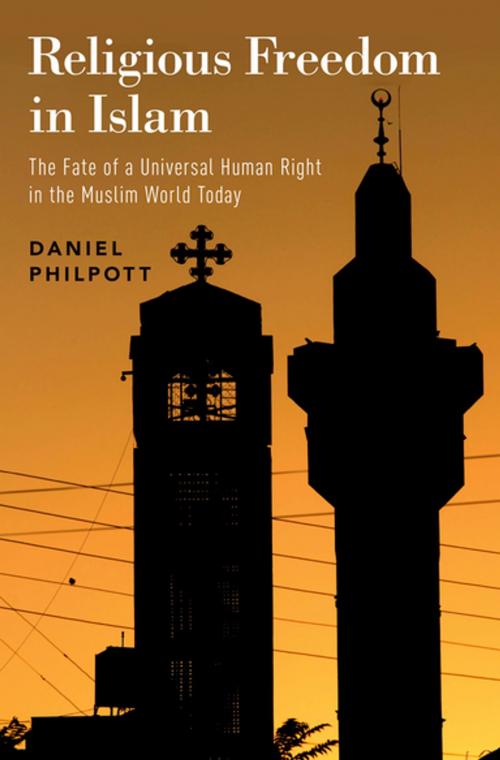Religious Freedom in Islam
The Fate of a Universal Human Right in the Muslim World Today
Nonfiction, Religion & Spirituality, Christianity, Church, Church & State, Middle East Religions, Islam, Social & Cultural Studies, Political Science, International| Author: | Daniel Philpott | ISBN: | 9780190908201 |
| Publisher: | Oxford University Press | Publication: | February 1, 2019 |
| Imprint: | Oxford University Press | Language: | English |
| Author: | Daniel Philpott |
| ISBN: | 9780190908201 |
| Publisher: | Oxford University Press |
| Publication: | February 1, 2019 |
| Imprint: | Oxford University Press |
| Language: | English |
Since at least the attacks of September 11, 2001, one of the most pressing political questions of the age has been whether Islam is hostile to religious freedom. Daniel Philpott examines conditions on the ground in forty-seven Muslim-majority countries today and offers an honest, clear-eyed answer to this urgent question. It is not, however, a simple answer. From a satellite view, the Muslim world looks unfree. But, Philpott shows, the truth is much more complex. Some one-fourth of Muslim-majority countries are in fact religiously free. Of the other countries, about forty percent are governed not by Islamists but by a hostile secularism imported from the West, while the other sixty percent are Islamist. The picture that emerges is both honest and hopeful. Yes, most Muslim-majority countries are lacking in religious freedom. But, Philpott argues, the Islamic tradition carries within it "seeds of freedom," and he offers guidance for how to cultivate those seeds in order to expand religious freedom in the Muslim world and the world at large. It is an urgent project. Religious freedom promotes goods like democracy and the advancement of women that are lacking in the Muslim-majority world and reduces ills like civil war, terrorism, and violence. Further, religious freedom is simply a matter of justice--not an exclusively Western value, but rather a universal right rooted in human nature. Its realization is critical to the aspirations of religious minorities and dissenters in Muslim countries, to Muslims living in non-Muslim countries or under secular dictatorships, and to relations between the West and the Muslim world. In this thoughtful book, Philpott seeks to establish a constructive middle ground in a fiery and long-lasting debate over Islam.
Since at least the attacks of September 11, 2001, one of the most pressing political questions of the age has been whether Islam is hostile to religious freedom. Daniel Philpott examines conditions on the ground in forty-seven Muslim-majority countries today and offers an honest, clear-eyed answer to this urgent question. It is not, however, a simple answer. From a satellite view, the Muslim world looks unfree. But, Philpott shows, the truth is much more complex. Some one-fourth of Muslim-majority countries are in fact religiously free. Of the other countries, about forty percent are governed not by Islamists but by a hostile secularism imported from the West, while the other sixty percent are Islamist. The picture that emerges is both honest and hopeful. Yes, most Muslim-majority countries are lacking in religious freedom. But, Philpott argues, the Islamic tradition carries within it "seeds of freedom," and he offers guidance for how to cultivate those seeds in order to expand religious freedom in the Muslim world and the world at large. It is an urgent project. Religious freedom promotes goods like democracy and the advancement of women that are lacking in the Muslim-majority world and reduces ills like civil war, terrorism, and violence. Further, religious freedom is simply a matter of justice--not an exclusively Western value, but rather a universal right rooted in human nature. Its realization is critical to the aspirations of religious minorities and dissenters in Muslim countries, to Muslims living in non-Muslim countries or under secular dictatorships, and to relations between the West and the Muslim world. In this thoughtful book, Philpott seeks to establish a constructive middle ground in a fiery and long-lasting debate over Islam.















